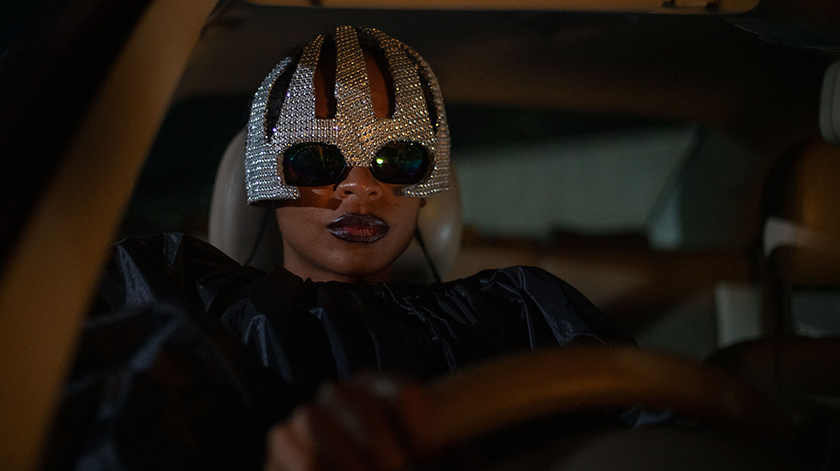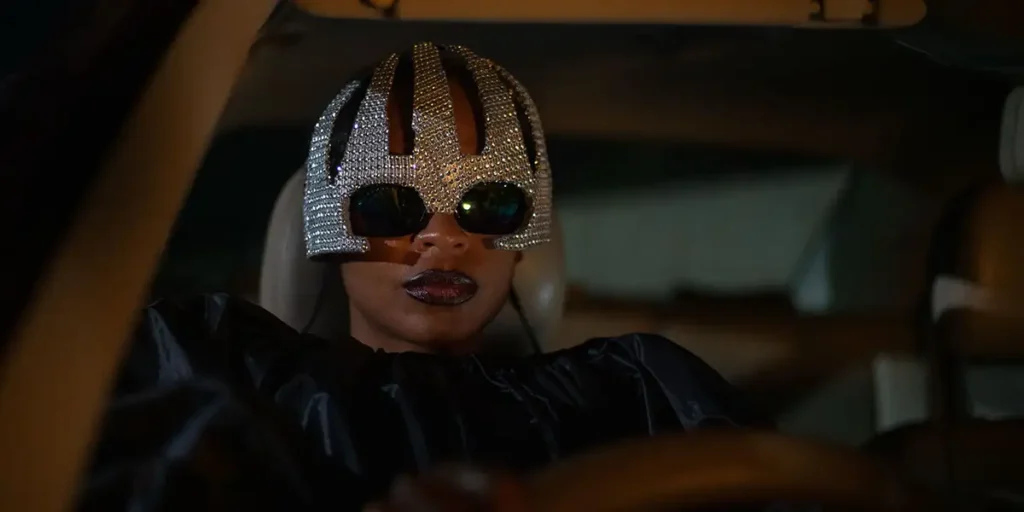Rungano Nyoni’s On Becoming a Guinea Fowl artfully shows audiences the danger of encouraging silence for the sake of upholding peace and dares them to find their voices.
Writer & Director: Rungano Nyoni
Genre: Drama, Comedy
Run Time: 98′
Rated: PG-13
New York Film Festival Premiere: October 3-11, 2024
U.S. Release Date: December 13, 2024 in select theaters
U.K. Release Date: December 6, 2024 in cinemas
Even though one in three women will face a form of sexual abuse in their lifetime, the topic somehow widely remains a societal taboo. This culture of not speaking out about the damage and trauma this particular type of abuse inflicts creates a breeding ground for it to continue happening. Rungano Nyoni’s sophomore film, On Becoming a Guinea Fowl, sheds light on the damage that results from not having open and honest conversations about sexual abuse. While the film is about the harm in encouraging silence, it also masterfully shows the power of finding your voice.
On Becoming a Guinea Fowl opens with its protagonist, Schula (Susan Chardy), who has recently returned to Zimbabwe, driving home after a friend’s costume party. As she cruises along a desolate road, her face drops from its carefree, jovial expression. She stops her car to get out and observes a man, whom she immediately recognizes as her Uncle Fred (Roy Chisha), lying on the side of the road, dead. Schula calls her father, who promises to rush over but never shows up, and her mother, Uncle Fred’s older sister, whom she cannot reach. While trying to contact the police, Nsansa (Elizabeth Chisela), Schula’s cousin, shows up by chance, completely wasted, and begins laughing at the discovery of her uncle’s body. The two cousins wait together for the police, who seem to be in no hurry at all to investigate.
Schula has shown no emotion since lowering her music after spotting her uncle’s body, but she’s immediately put in charge of gathering her family for the days-long funeral of Uncle Fred. Her aunties and cousins swarm her and her mother’s home, along with Fred’s widow’s family, and grieve the loss of a staple in their family. As her aunts mourn their brother openly, Schula cannot bring herself to do the same. Her aunts and mother begin to grow frustrated with Schula’s apathy towards her uncle’s passing but there is a deep sense she will not mourn just because they want her to. Schula instead busies herself with ensuring everyone is fed and in attendance at the house of mourning.
When Schula is asked to retrieve her young cousin Bupe (Esther Singini) from the nearby dorms, she finds Bupe in an incapacitated state mumbling she is happy “he” is dead. Once brought to the local hospital, Schula finds a video Bupe has made for her mother trying to explain the extensive sexual abuse she endured at the hands of Uncle Fred. Although Bupe has attempted to take her own life and has finally found the courage to tell her mother what has happened to her, Schula’s family swears her to secrecy and stomps out any talk of sexual abuse during the family’s time of mourning. As the film progresses, we see Bupe is not the only victim of Uncle Fred in the family and we witness the toll years of asking young girls in the family to stay silent has taken on the family’s dynamic.
On Becoming a Guinea Fowl is a film about the unsaid. The dirty, awful things that are deemed too gruesome to speak out loud and their ability to rot the souls of those who had to suffer through them. Nyoni’s choice to have the years of abuse by Uncle Fred come to light at his funeral directly shows the viciousness of swearing these young women to silence their entire lives and how the concept of “keeping the peace” in situations like this never keeps the peace of the victims.
The elder women of the family, who know Uncle Fred as their younger brother, are blinded to the reality of his heinous actions. When the young women of the family like Schula, Nsansa and Bupe erupt with complicated feelings about his death, the elder women take it personally. There’s a societal expectation that no one should speak ill of the dead, but On Becoming a Guinea Fowl raises the question: if we’re allowed to talk about their impact, why can it only be positive? Why even in death must we lie to each other about what has happened? When do these girls get a chance to express how they feel, truthfully?
Nyoni’s film shows a family so intensely steeped in tradition it actively harms its younger generation. Through the death of the abuser, Schula and the youngest members of the family are fighting to finally be heard and, more importantly, validated. Silence in situations of sexual assault is soul-crushing. The film shows the lengths victims will go to in order to rid themselves of the burdens their abuse has inflicted on them and yet the topic is still seen as too faux-pass to discuss with the people who are always supposed to be there for each other.
This is a film that doesn’t turn a blind eye to the effects of sexual abuse, and Nyoni’s directorial style expertly shows the impacts of it as well. Schula has a lot of trauma responses triggered throughout the movie that often lead her from one place to another in a way that doesn’t make linear sense.

Since the film follows Schula, the audience often hops between the past and present with her as she tries to make peace with the actions of a dead man. There are moments in the movie where Schula will open a door in a hospital and end up in her backyard instead, which is done to show how disorienting dealing with all of this truly is. As we go deeper into her past, the film begins to enter into fantastical territory, demonstrating escapism tactics victims can also experience. It’s clear this movie was not just made with the intention of talking about sexual abuse, but also with validating those who have unfortunately experienced it.
On Becoming a Guinea Fowl is thematically heavy, but not completely devoid of hope. The film shows the unparalleled depth of pain that stems from abuse, but it also sheds light on the magic found in kinship. Without Shula, Nsansa would have not found the strength to confront her traumatic past and continued down her path of self-destruction. If it hadn’t been for the way Shula saw Bupe struggle, she would have never been able to realize her voice mattered and that staying silent for the sake of “keeping the peace” in the family really only protected the peace of her predatory uncle. The trauma and abuse that binds these three cousins is unimaginable but there’s beauty to be seen in the way they find strength in one another and decide the cycle of abuse ends with them.
On Becoming a Guinea Fowl was screened at the New York Film Festival on October 3-11, 2024. The film will be released in UK cinemas on December 6, 2024 and n select US theaters on December 13.

